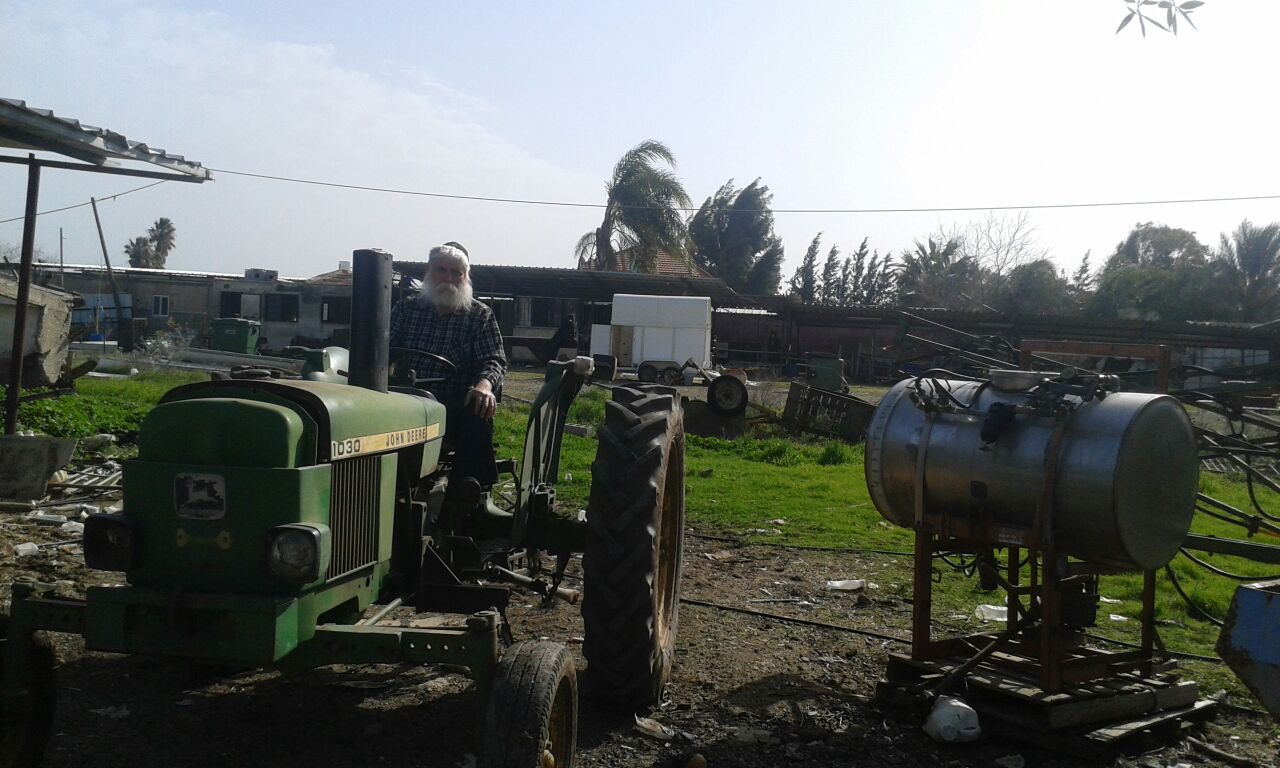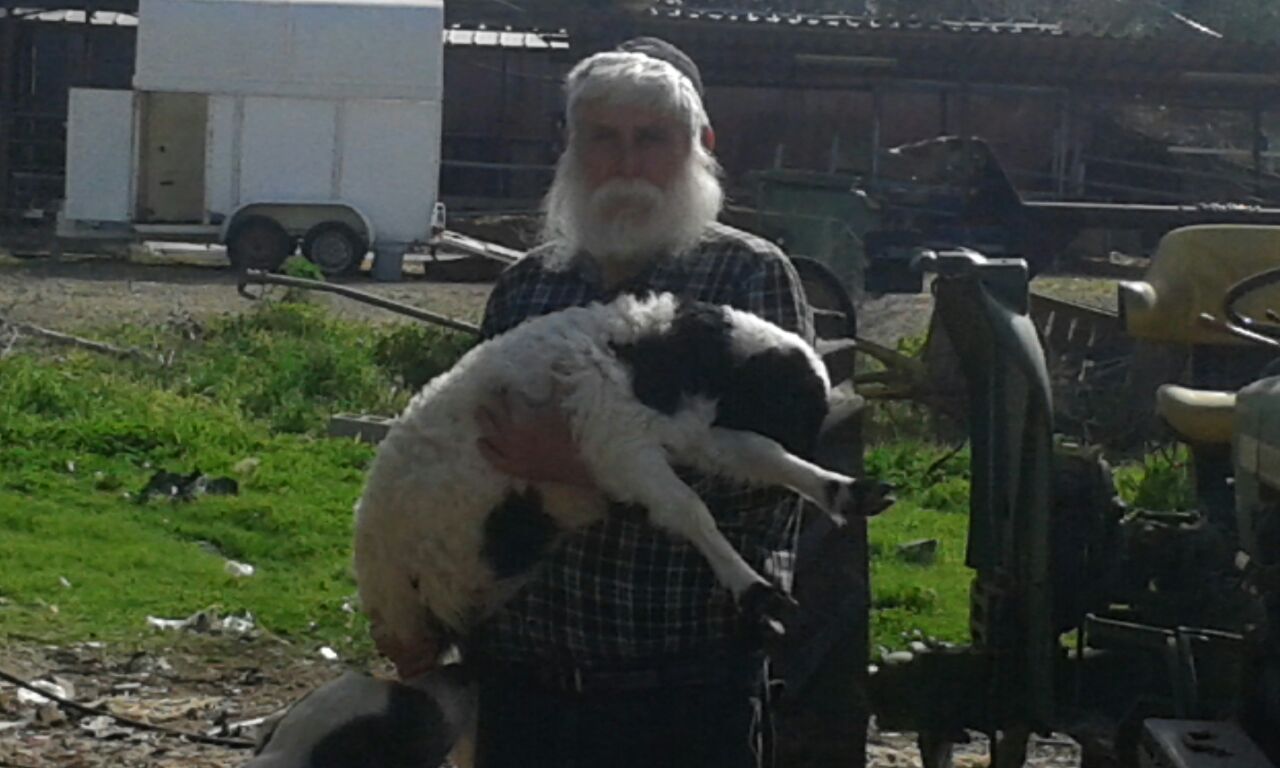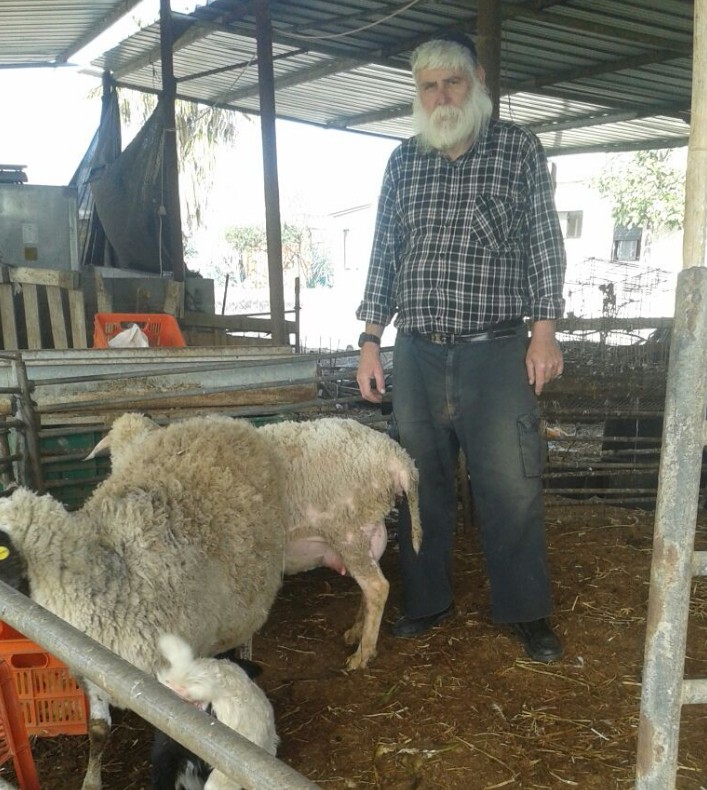The Hasidic Farmer of Kfar Gideon: "When I Say 'Grant Dew and Rain for a Blessing', It Feels Like Yom Kippur Prayers"
For over 60 years, Zeev Steigelitz, the farmer from Kfar Gideon, has tended to his agricultural holdings. What does he grow? How did he help Rabbi Elyashiv fulfill a mitzvah? And what does he have to say ahead of Tu Bishvat?
 Zeev Steigelitz the Farmer
Zeev Steigelitz the FarmerZeev Steigelitz wakes up every morning at 5:15, and right after morning prayers, he gets to work: he rides his tractor to the agricultural fields surrounding his home, fertilizes and tends to them, and then goes to work as a kosher supervisor at a canning factory in Afula.
Steigelitz's daily routine for 63 years has primarily consisted of hard work in the field, and he's never grown tired of it. "I was born into the world of agriculture," he shares. "Until I was four, my family lived in Moshav Beit Hillel, considered a secular community. But my late father wanted to raise us according to the spirit of the Torah and Judaism, so we moved to Kfar Gideon, a mainly Hasidic agricultural settlement." Since then, Zeev has been in the field, plowing his land, caring for it, and making a living from his private farm.
"Not Accountable for Insects"
Steigelitz remembers his early days in Kfar Gideon as a challenging time. "I was a young child," he recalls, "and the village leaders couldn't connect us to electricity, so our house was lit solely by lanterns for several years."
Farming back then was quite different from today. "I remember plowing the fields with mules. That's unheard of now. Also, I used to milk cows by hand on our farm because nobody used machines then."
Nonetheless, Zeev admits he's still a bit behind in terms of technology. "Today, most farmers work with large tractors, cultivating thousands of dunams. But I do all the work myself, solo. I have my little tractor, and my fields include only 100 dunams. I handle it all—plowing, sowing, spraying, etc. For particularly special operations, like using a combine, I hire workers as I lack the necessary equipment."

What do you grow in the fields?
"Right now, I mostly grow grain, parsley, rocket, and other fruits and vegetables, but it varies from season to season based on profitability. I once tried growing insect-free vegetables like cauliflower, broccoli, cabbage, and lettuce, but gave it up due to the overwhelming responsibility of dealing with insect threats. It's impossible to grow them without worms in the summer, and you must spray them thrice weekly. Who can take on such accountability? So, I stopped going down that route."
Steigelitz also limits his planting of trees, but for different reasons. "There's a considerable problem with growing trees here since they stop yielding fruit after about 12 years, requiring them to be uprooted and replaced. Farmers really have no choice but to do this, but I can't bear to uproot trees. It's written ‘For a human is like the tree in the field,’ and I won't compromise my spirituality for income, so I've largely ceased growing fruit trees."
Is farming economically viable?
"Honestly, not really," he candidly replies. "You might buy cabbage for 12 shekels and think you're supporting me, but, actually, I only earn about 1.20 from it, and the same goes for other crops. Farmers earn a meager amount, barely breaking even. I don't mind the fees middlemen charge who buy stock from us; they mainly arise because the retail chains are allowed to raise prices disproportionately, and it pains me. Many farmers have left this field due to its lack of profitability."
Mighty Force
The more you talk to Zeev, the clearer it becomes how challenging farming is. "A farmer must be full of faith," he explains. "You never know your salary or earnings. You must always pray, and in drought years, like last year, when I recite 'Grant Dew and Rain for a Blessing,' I feel like Yom Kippur prayers, knowing that without dew and rain, I won't recoup my investment."

Faith becomes even more crucial during the sabbatical year. "Thank Hashem; I've kept nine sabbatical years in my life," Zeev proudly states. "Every year is a renewed challenge because standing idle in front of your field without working or conducting necessary tasks is tough. 'Heroes of strength who do His words,' people say of us farmers, "a person once asked me: what's so brave about taking a year off and not working? Where's the heroism? But there are things only a farmer can understand—the itch in your fingers and the urge to tend to trees—feeling like it pulses through your veins."
That's what prompted me to sow during the sabbatical year once. Planting happened before Rosh Hashanah, allowing me to sell some crops. "It's permissible in retrospect, but eventually, I realized the amount I earned from what I reaped that year was exactly what I lost in the following year's fields. It clearly showed me that when you fulfill a sabbatical year, do it to the fullest, without sowing anything."
Another event that reinforced his faith involved the sheep he raises. "About 15 years ago, Rabbi Elyashiv wanted to fulfill the mitzvah of the first fleece, as he never got the chance before," he relates. "His family came to me asking for help. Naturally, I agreed. I went to Jerusalem with five sheep, and we held a grand event where the rabbi purchased and sheared their wool. At the end, I asked if the rabbi would sell the sheep back, but he declined, citing a halachic issue. I suggested the rabbi return the sheep to me, and I'd sell them the next day to a non-Jew. He did, and the following morning I sold the sheep and bought them back, similar to Passover chametz sales."

Despite the legitimacy of Zeev's actions, he says he gained nothing. "Of the five sheep, three were stolen and two died," he mentions. "These sheep brought no blessing, and from this, I learned to walk the righteous path without cunning."
"What is Destined for You—You Shall Receive"
As Tu Bishvat approaches, Steigelitz finds satisfaction visiting his fields. "Rain has fallen just as needed this year, the crops are thriving, and now, during this time, you can see everything flourishing," he enthuses, though he mentions his daily rain prayers remain essential.
"I can tangibly see that the key to rain is solely in Hashem's hands. If Hashem doesn't send rain, there's no other way to get it. Incidentally, last year the south received more rain than the north," he notes, understanding clearly why, "in the previous year, a sabbatical year, more communities in the south observed it than in the north, so they were simply more blessed."
Steigelitz states with total conviction, "The south had 500mm while the north got only 280mm. It shows what is destined for you will come; what is not simply won't," he asserts with sincere faith.

